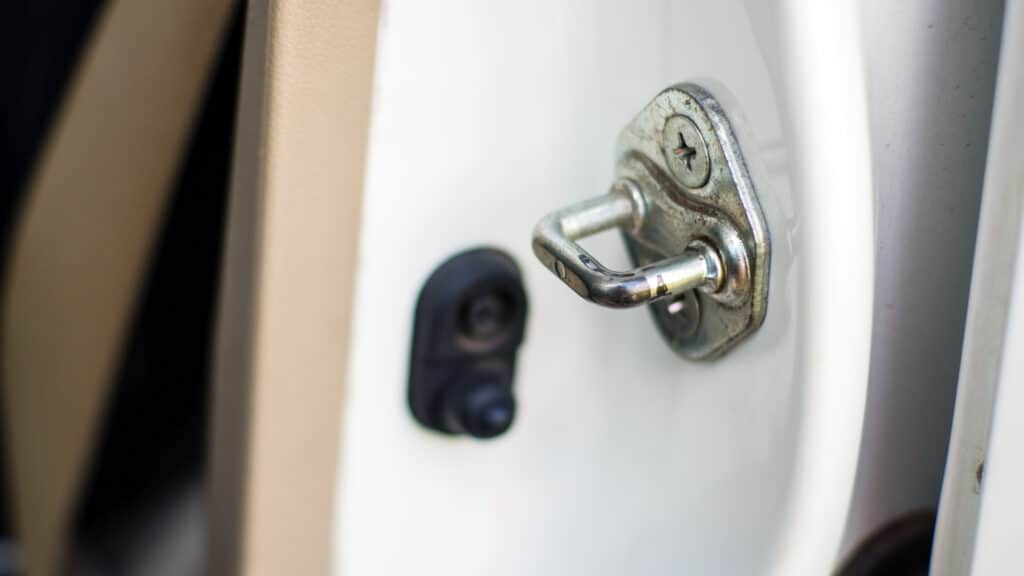With 15 recalls, a few lawsuits and over a thousand complaints, the 2018 Ford F-150 pickup truck is at a considerable risk of being a lemon. Whether you use your Ford pickup for at-home projects, hauling supplies for a small business, or merely using it to get around, you should be able to drive it without worrying it will fail to provide you with reliable transportation.
If your 2018 Ford F-150 has issues affecting your ability to drive safely, get it repaired by your local dealership as soon as possible. Should your dealership fail to fix your issues, the California Lemon Law may allow you to recover significant restitution from your auto manufacturer.
Table of Contents
Top 2018 Ford F-150 Symptoms
The most common complaints about 2018 Ford F-150 trucks are for issues in its transmission, engine, electrical system or structural problems.
Many 2018 Ford F-150 drivers report the following symptoms:
- Rattling sound in the engine
- Auto Start/Stop feature fails
- Excessive oil consumption
- Faulty cam phaser
- Tailgate opening randomly
- Harsh shifting or jerking
- Gear slipping or skipping gears
If your 2018 Ford F-150 has these problems, check if you are part of any outstanding recalls through NHTSA’s website, or learn more about common Ford problems. Keep in mind that some issues may be specific for Ford F-150 trucks of specific model years.
2018 Ford F-150 Recalls
Given that many complaints on the 2018 Ford F-150 are transmission-related, recalls for transmission issues aren’t much of a surprise. If your Ford F-150 is in any of the three transmission-related recalls, it may be prone to gear slipping or rollaway risk.
Ford F-150 Transmission Recalls
- Unintended Vehicle Movement: Certain 2018 Ford F-150 trucks with 3.3-L engines, a 6-speed transmission and a column mounted shift lever may not detect which gear is supposed to be selected when the level is moved from Park to Drive. The Powertrain Control Module may mistakenly select “Neutral” or “Reverse.” This causes the vehicle to act like it is in the Neutral or Reverse gear before it achieves forward driving.
- The Truck Isn’t Actually In Park: Certain 2018 Ford F-150 trucks with 10-speed transmissions have a gear shift cable clip that can become unseated or dislodged. This allowed the transmission to appear to be in PARK when it is actually in a different gear, creating a rollaway risk.
- Loss Of Park Function: Certain 2018 Ford F-150 trucks with 10-speed transmissions may have lost the PARK function because a roll pin wasn’t installed in the transmission.
Sometimes, issues with vehicle movement are caused by engine issues themselves. That’s the case with one engine recall. However, the rest seem to indicate risk of vehicle fires.
Ford F-150 Engine Recalls
- Cylinder Heads Incorrectly Machined: Ford F-150 trucks with 3.5-L engines may experience improper lubrication of the camshaft, which can result in engine failure and loss of motive power. Drivers may hear unusual engine noises and experience rough running before the engine fails.
- Ford Engine Block Electrical Shorts: Ford F-150 trucks with engine block heaters may have water or contamination get into the block heater cable’s splice connector. The resulting corrosion can cause electrical shorts that create a risk of overheating and fires.
- Second Recall: Certain Ford F-150 trucks that were previously recalled may have had the block heater cable’s splice connector damaged during the previous repair.
- Fuel and Oil Leaks: 2018 Ford F-150 trucks with 3.5L GTDI V6 engines have high pressure fuel pump assemblies with welds that can fracture, allowing for oil or fuel leaks that increase the risk of a fire.
Ford F-150 Structural Recalls
- Fire After Seat Belt Pretensioner Deployment: When the pretensioner for the front seat belt deploys during a crash, the pretensioner may generate sparks that lead to a fire inside the cabin.
- Structural Integrity Sacrificed: Certain 2018 Ford F-150 Raptor Super Cab pick-up trucks without a moonroof may have less structural integrity because the structural roof braces may be missing rivets at the attachment of the roof rail.
Ford F-150 Brake Recalls
- Brake Fluid Leaks: 2018 Ford F-150 trucks with 3.5-L EcoBoost engines may have fluid leak from the brake master cylinder. Over time, the front brakes would show reduced function.
Other 2018 Ford F-150 Recalls
- Tailgate Recall: The tailgate may open unexpectedly, allowing unrestrained cargo to fall out onto the road.
- Tire Recall: Some Ford F-150 drivers may lose control of the vehicle because their tires may lose air suddenly or experience belt edge separation that leads to tread/belt loss. This is a result of overcured tires developing a break in the sidewall.
- Daytime Running Lights Don’t Dim: Daytime running lights may be unable to dim, reducing the visibility of other drivers.
- Reduced Seat Back Strength: Some Ford F-150 trucks may have a seat back with a recliner mechanism that wasn’t properly assembled. As a result, the mechanism may not be strong enough to restrain an occupant in a crash.
2018 Ford F-150 Lawsuits
A Ford 5.0 Engine class action lawsuit alleges that 2018-2020 Ford F-150 trucks with “Coyote” engines can experience the following issues:
- Excessive oil consumption
- Poor lubrication
- Engine rattling
- Engine stalling
- Premature engine wear
- Engine failure
The Ford lawsuit alleges that motor oil is consumed quickly because engine defects allow oil to leak into the combustion chamber and get burned off.
A Ford 10-Speed Transmission lawsuit alleges that the 10R80 transmission in many 2017 and newer Ford F-150 trucks can cause “life threatening” problems. According to this lawsuit, your 2018 Ford F-150 truck may experience:
- Whiplash
- Clunking while starting the engine
- Harsh and erratic shifting
- Vehicle jerking or lunging
- Hesitation between gears
- Loss of power
If your 2018 Ford F-150 is experiencing problems with its 5-liter engine or its 10-speed transmission, opt out of these lawsuits before the deadline. If you’re unsure of how to opt out, call us at 833-208-8181 for a free consultation.
If you suspect that your 2018 Ford F-150 is a lemon due to issues with your door latch, you may be out of luck. A lawsuit alleging that design defects cause the door latch to malfunction has long ago reached settlement. The Ford Door Latch settlement deadlines have long since passed. Unless you had opted out of this class action, you may not be able to pursue an individual claim for these issues.
Call a Ford Lemon Law Attorney Today
If your 2018 Ford F-150 has recurring engine, transmission or electrical problems, you may have a lemon on your hands. The key to knowing if your truck is potentially defective is relatively simple. Did you take your truck to the Ford dealership for warrantied repairs when the issue surfaced? Did the dealership fix it within a reasonable number of attempts? Do the issues with your Ford F-150 impact its use, value or safety?
If issues affecting your Ford F-150’s drivability are not being resolved within a reasonable amount of repair visits, it’s time to talk to a lemon law attorney. Don’t worry, our consultations are free. Simply call our toll-free number and tell us about your situation, and we can explain your legal options.
If you decide to retain us as your attorneys, you do not pay us out of pocket for anything. We work on a contingency fee basis. This means the auto manufacturer pays us if we win your lemon law case, and if we lose, we get nothing.
Ready for a consultation? Call us at 833-208-8181 or answer some quick questions in our form below this blog post.






